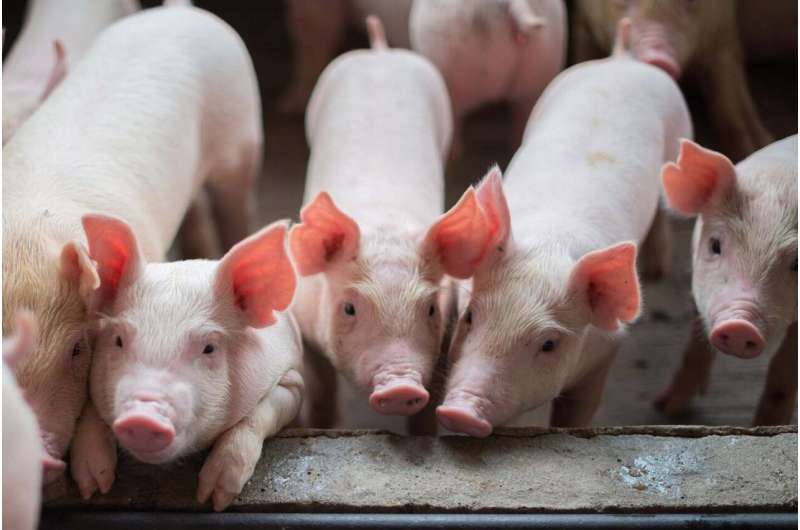Vaccine development software shows promise in influenza effort, could help defeat coronavirus

A novel computer algorithm that could create a broadly reactive influenza vaccine for swine flu also offers a path toward a pan-influenza vaccine and possibly a pan-coronavirus vaccine as well, according to a new paper published in Nature Communications.
"This work takes us a step closer to a pan-swine flu virus vaccine," said Bette Korber, a computational biologist at Los Alamos National Laboratory and a co-author on the paper. "The hope is to eventually be prepared with an effective and rapid response if another swine flu epidemic begins to spread in humans, but this swine flu vaccine could also be useful in a veterinary setting." The immune responses to the vaccine showed very promising breadth against diverse viral variants. "The same basic principles may be applicable to developing a pan-coronavirus vaccine to enable a rapid vaccine response to future coronavirus cross-species jumps," said Korber.
The algorithm, Epigraph, has already been used to predict therapeutic HIV vaccine candidates, and it has also shown promising potential as a pan-filovirus vaccine against highly diverse Ebola and Marburg viruses, protecting against disease when tested in an animal model.
Vaccination with the Epigraph-designed product led to the development of a strong cross-reactive antibody response in mice, the study showed. In swine, it induced strong cross-reactive antibody and T-cell responses. The research was conducted in close collaboration with researchers from the Nebraska Center for Virology at the University of Nebraska, St. Jude Children's Research Hospital, and Los Alamos National Laboratory.
"We developed the Epigraph strategy for this kind of problem, and it can, in theory, be applied to many diverse pathogens," said Korber, who created it in partnership with her husband, James Theiler, a Los Alamos Fellow. "The tool creates a cocktail of vaccine antigens designed to maximize efficacy across a highly diverse population."
Since 2010, more than 460 swine-flu variant infections have been reported in humans in the United States. Pigs are susceptible to swine, avian, and human influenza viruses, making them the perfect "mixing vessel" for novel reassorted influenza viruses, the authors note. These novel reassorted viruses have significant pandemic potential if zoonosis (transfer from pigs to humans) occurs, as seen with 2009 H1N1 swine flu pandemic.








 User Center
User Center My Training Class
My Training Class Feedback
Feedback












Comments
Something to say?
Log in or Sign up for free